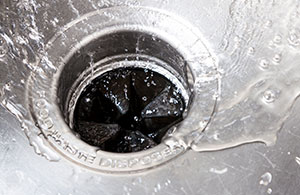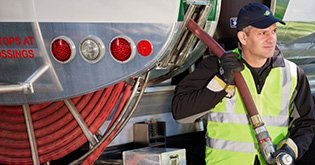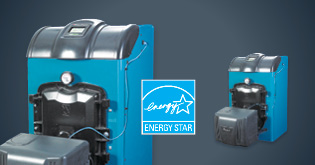
Tips to help prevent plumbing emergencies.
 Let’s face it. You don’t really think much about the pipes or plumbing system in your home until there’s a plumbing emergency. However, if you take a few precautionary maintenance steps, you can either be better prepared for any
plumbing emergencies or better yet, avoid them even happening!
Let’s face it. You don’t really think much about the pipes or plumbing system in your home until there’s a plumbing emergency. However, if you take a few precautionary maintenance steps, you can either be better prepared for any
plumbing emergencies or better yet, avoid them even happening!
You can use these maintenance tips to keep your home’s plumbing system in good shape and prevent plumbing some plumbing emergencies:
- Schedule seasonal plumbing checklists.
Every season presents different challenges and issues for your plumbing system. Summer requires more water consumption. Winter requires protecting the system from cold weather and freezing. Be mindful that at least twice a year, you should create a checklist of items that need to be done to prepare your plumbing system for warmer and colder weather. - Know when an inspection is required.
No matter how skilled of a DIY pro you may be, there are some tasks that ONLY a plumber should take care of. Do your homework and take the time to find a local plumber that you know and trust to call for an inspection and help diagnose any potential problems before they happen. - Be diligent about checking regularly for leaks!
It may seem obvious but ignoring a simple, non-major leak, can cost you hundreds of dollars in wasted water. Check all your faucet handles, look below sinks, check valves and pipes around the toilet, keep an eye on hoses and outdoor valves, and monitor appliances like dishwashers, fridges, and washing machines. Ideally, try to do this once a month and definitely make it part of your seasonal plumbing checklist.

- Be aware of your home’s water pressure.
Every home has slightly different pressure but if yours drops noticeably while taking a shower, bath or washing dishes, it’s time to figure out why. If the low pressure is coming from a faucet or shower head, clean the aerators as sediment can build up. A water pressure gauge can also help you measure your water pressure. If you can't identify the cause of the problem, a water main leak can also lead to reduced pressure. If that’s the case, call a plumber right away! - Be mindful about clogging drains!
Putting anything down a toilet, shower and bath drains, sink, or garbage disposals that they are not really meant to handle leads to build up and can cause a clog. For example, garbage disposals cannot handle ALL food remnants. Highly fibrous foods can cause problems, as can cooking grease or fats once they cool down. Hair can also build up in shower and bath drains. Again, monitor how water drains in plumbing areas throughout your home. If it’s slower than normal, you may be dealing with a clogged pipe or drain.
Now that you’ve got these tips, taking these small steps now can really help mitigate any potential plumbing emergencies in the future. But, if you ever do need to hire a plumbing professional for any reason, our team is only a phone call away!



.jpg)
.jpg?sfvrsn=38eb02bb_5)